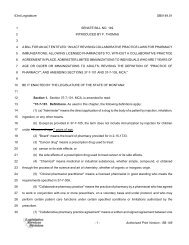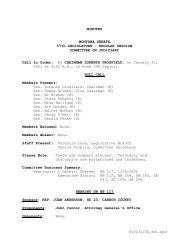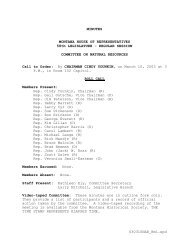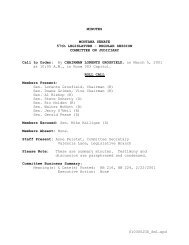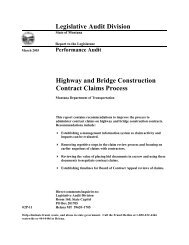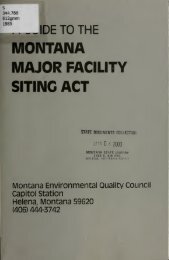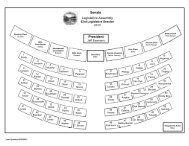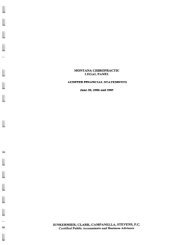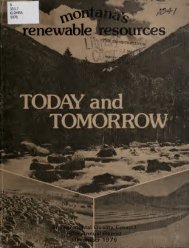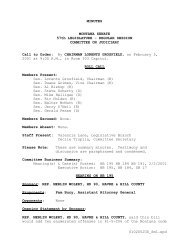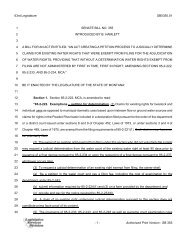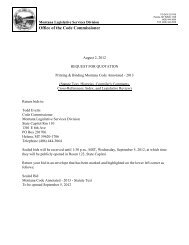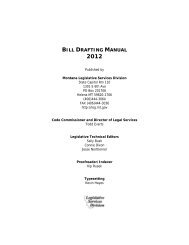Public Comment. Volume III - Montana Legislature
Public Comment. Volume III - Montana Legislature
Public Comment. Volume III - Montana Legislature
Create successful ePaper yourself
Turn your PDF publications into a flip-book with our unique Google optimized e-Paper software.
HOLLAND & HART<br />
ATTORNEYS AT LAW<br />
LLP<br />
Environmental Quality Council<br />
April 11, 2000<br />
Page 3<br />
advanced for changing the burden other than that "clear and convincing" is a<br />
middle ground which, as we.have pointed out, is not accurate as far as civil<br />
litigation is concerned. Like many of the proposals before the subcommittee,<br />
this type of change would make the exercise of eminent domain more difficult<br />
without any objective justification.<br />
To the extent we can take guidance from other jurisdictions,, it is<br />
significant that all of the western states surrounding <strong>Montana</strong> (Wyoming, Utah,<br />
Colorado, Idaho, and North Dakota) do not require the higher standard.<br />
It has been proposed that a jury rather than the judge make the<br />
determination of necessity, that is whether the taking is necessary for the<br />
intended public use. MCA 70-30-1 11(2). That decision has been made by the<br />
court (judge) for years and it should not be changed. Having a judge determine<br />
the issue of necessity lends consistency and predictability to the process.<br />
Necessity is not defined in the eminent domain statutes, but there is case law in<br />
<strong>Montana</strong> which sets standards for that determination. Those standards are better<br />
understood and applied by a judge who has legal training, rather than a jury of<br />
laypersons who do not have access to the case law, and more importantly are not<br />
trained in the Iaw.' To the extent possible, interpretations of what is necessary<br />
should be consistent, and lack of consistency or predictability on this issue<br />
benefits neither the landowner nor the condemnor.<br />
There is precedent in other areas for the judge to make the decision on<br />
necessity. Quiet title actions and partition of real property are two areas in<br />
which a judge, not a jury, is the trier of fact. Again, tbis is an area in which<br />
<strong>Montana</strong> law is compatible with the surrounding states. Of course the<br />
condemnee is entitled to have a jury determine fair or just compensation, and in<br />
fact is entitled to present that issue to a panel of three commissioners prior to a<br />
trial in district court. Either party may appeal the award made by the<br />
commissioners to the district court and have ajury set compensation.<br />
I also disagree with the proposal that possession be postponed until all<br />
appeals are exhausted. Unfortunately, our court dockets are very crowded and<br />
the judicial process does not move with the speed that we might wish. Criminal<br />
cases take precedence over civil actions, and postponement of possession by the<br />
condemnor could delay commencement of a project for many months, if not<br />
years.<br />
-1 20- <strong>Volume</strong> Ill: <strong>Public</strong> <strong>Comment</strong>



